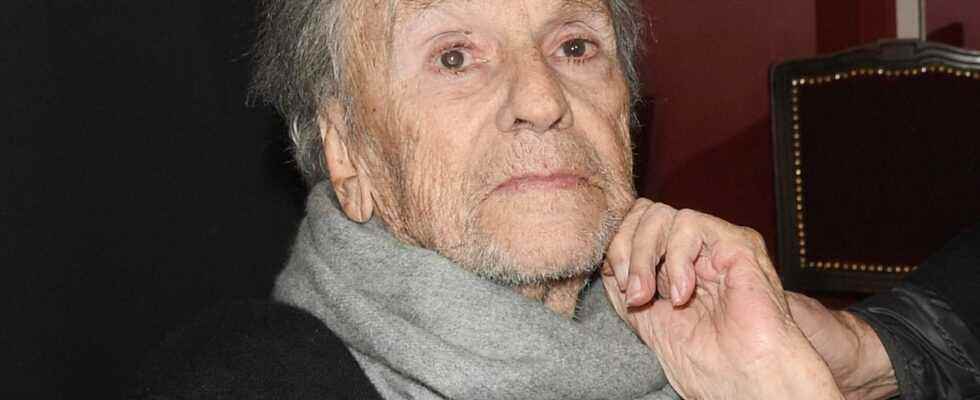Jean-Louis Trintignant left us on June 17 at the age of 91. According to his wife Mariane Hoepfner Trintignant to AFP, the actor “died peacefully, of old age, this morning, at his home, in the Gard, surrounded by his loved ones.” Jean-Louis Trintignant leaves behind him a rich career of more than sixty years and also, his son Vincent, born of his affair with Nadine Trintignant, also mother of his two daughters, Pauline and Marie Trintignant, who died in 1969 and 2003 respectively.
Jean-Louis Trintignantnever really liked” Paris
It was at the Pont de Justice cemetery in Nîmes that Jean-Louis Trintignant was buried on June 22. A place different from that of his daughter Marie who rests in the Père Lachaise cemetery in Paris.
A great admirer of Jean-Louis Trintignant, the journalist Laurent Del Bono is the author of the book Jean-Louis Trintignant, a family story which will be released on September 22, 2022 by Prisma groupe editions. In an interview withCurrent wife Thursday, June 30, Laurent Del Bono mentioned the reason why Jean-Louis Trintignant was not finally buried alongside his daughter Marie Trintignant: “When Marie died, he would have liked her to be buried in Provence, where her family is from. Nadine preferred her to be buried in Paris so that she could go and pray at her daughter’s grave. bent to his choice.Jean-Louis Trintignant is very attached to his roots and considers himself a provinciall in Paris, a city he never really liked. He returned there as soon as he could and is buried a very few kilometers from where he was born. (in Piolenc), like all his family over several generations.”
In this interview, the author of Jean-Louis Trintignant, a family story, also described the very fusional relationship that Jean-Louis Trintignant had with his daughter Marie and also the father’s message to the deceased: “He had this very beautiful sentence at the funeral: ‘don’t cry to have lost her, but rejoice to have known her.’ He will say one day that the idea crossed his head to go To kill him.” A sentence that alludes to Bertrand Cantat, guilty of the death of Marie Trintignant.
